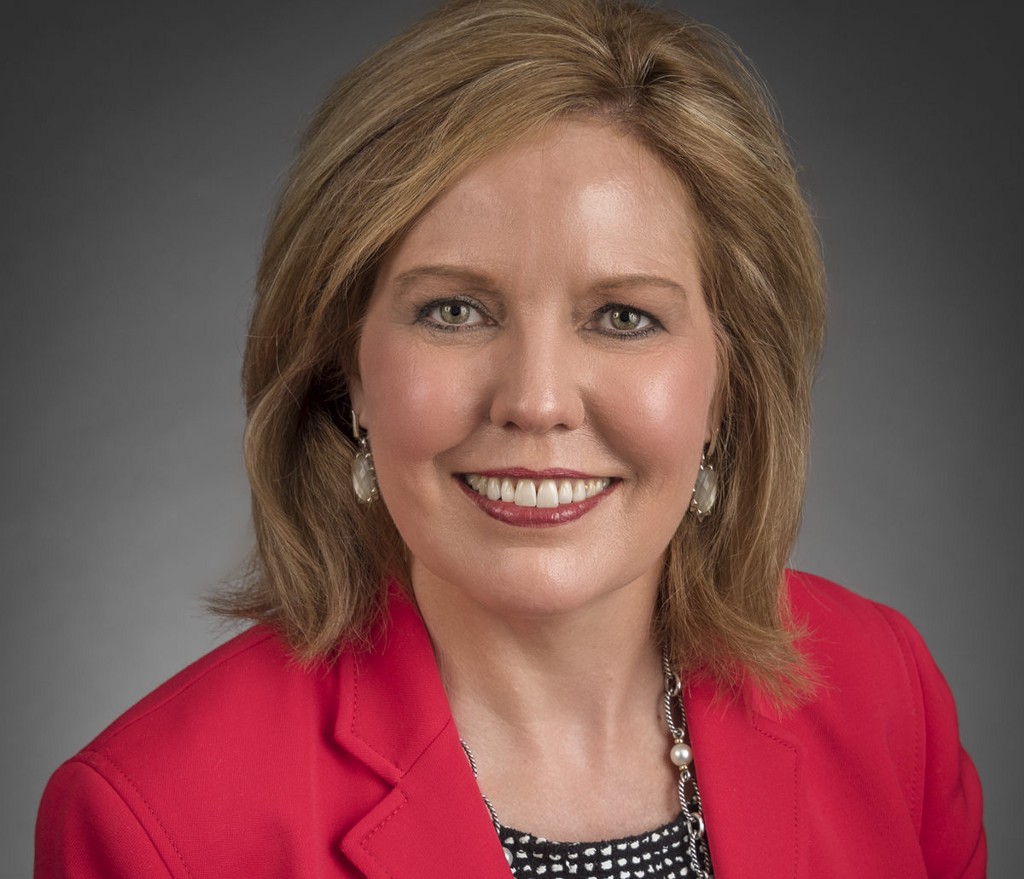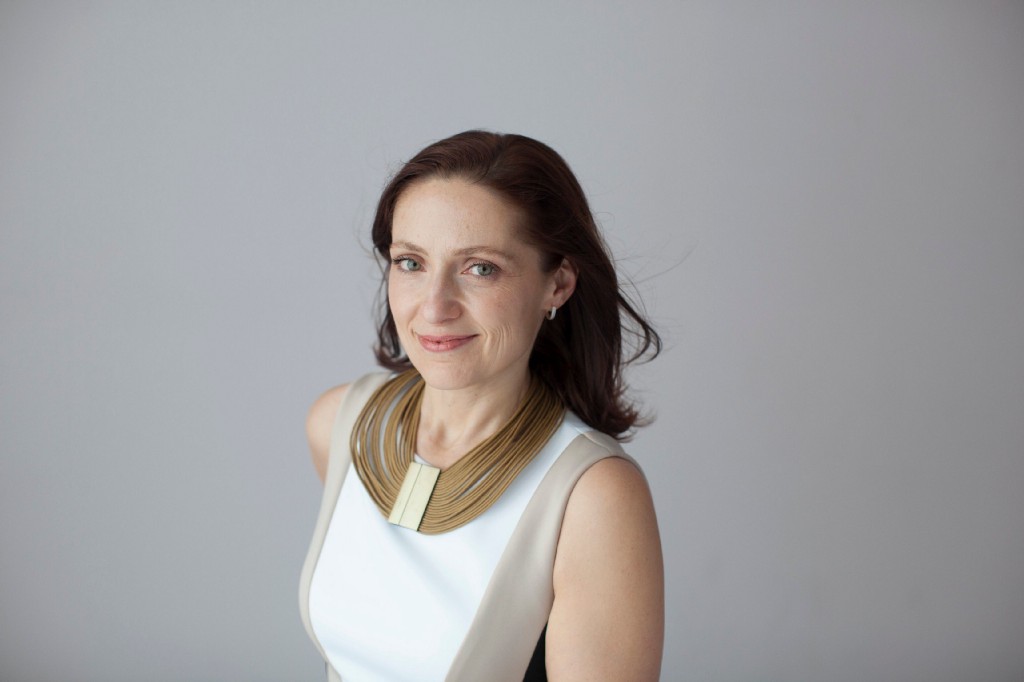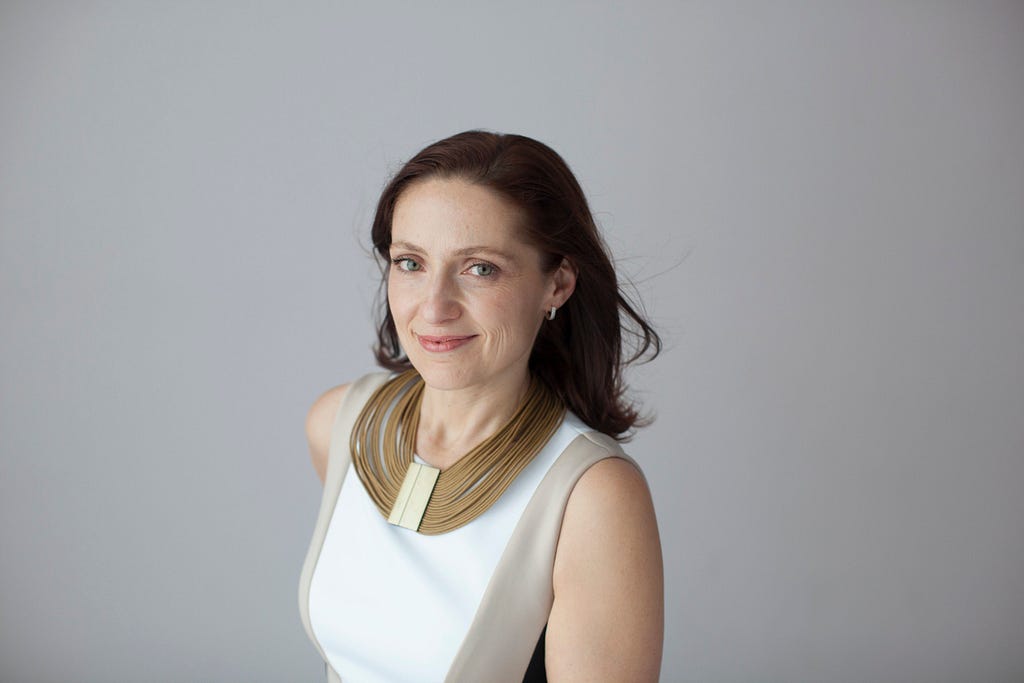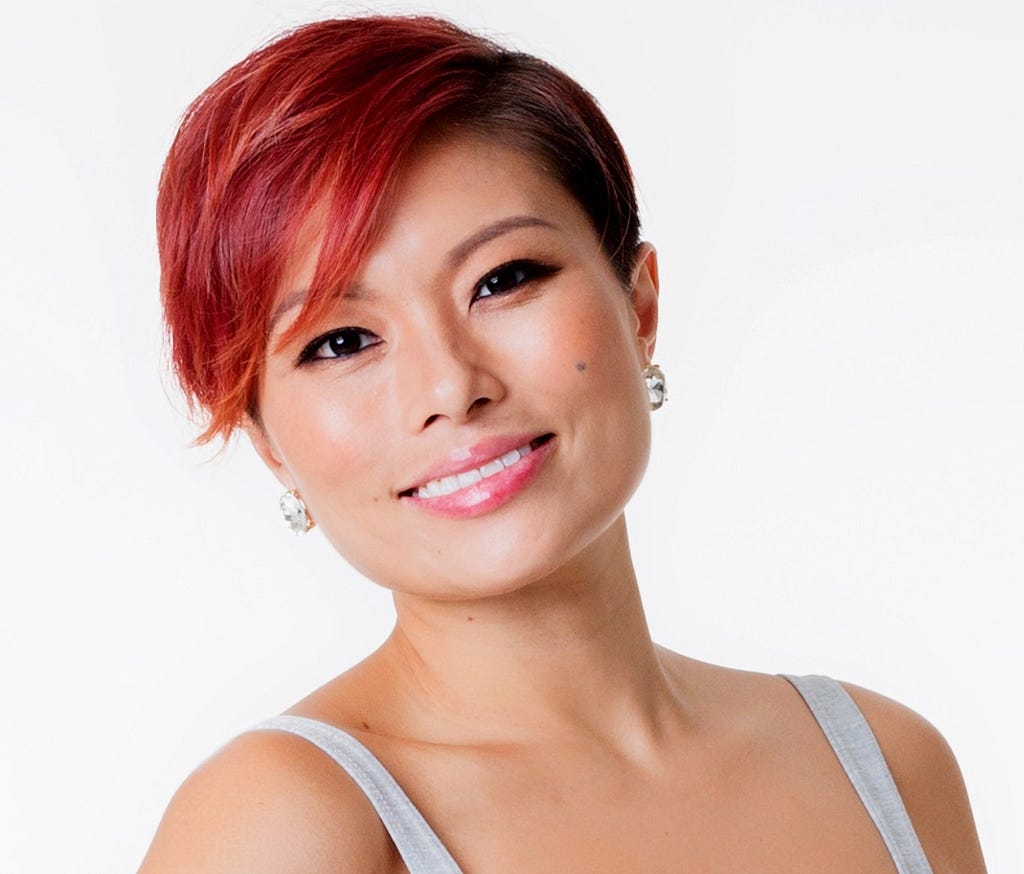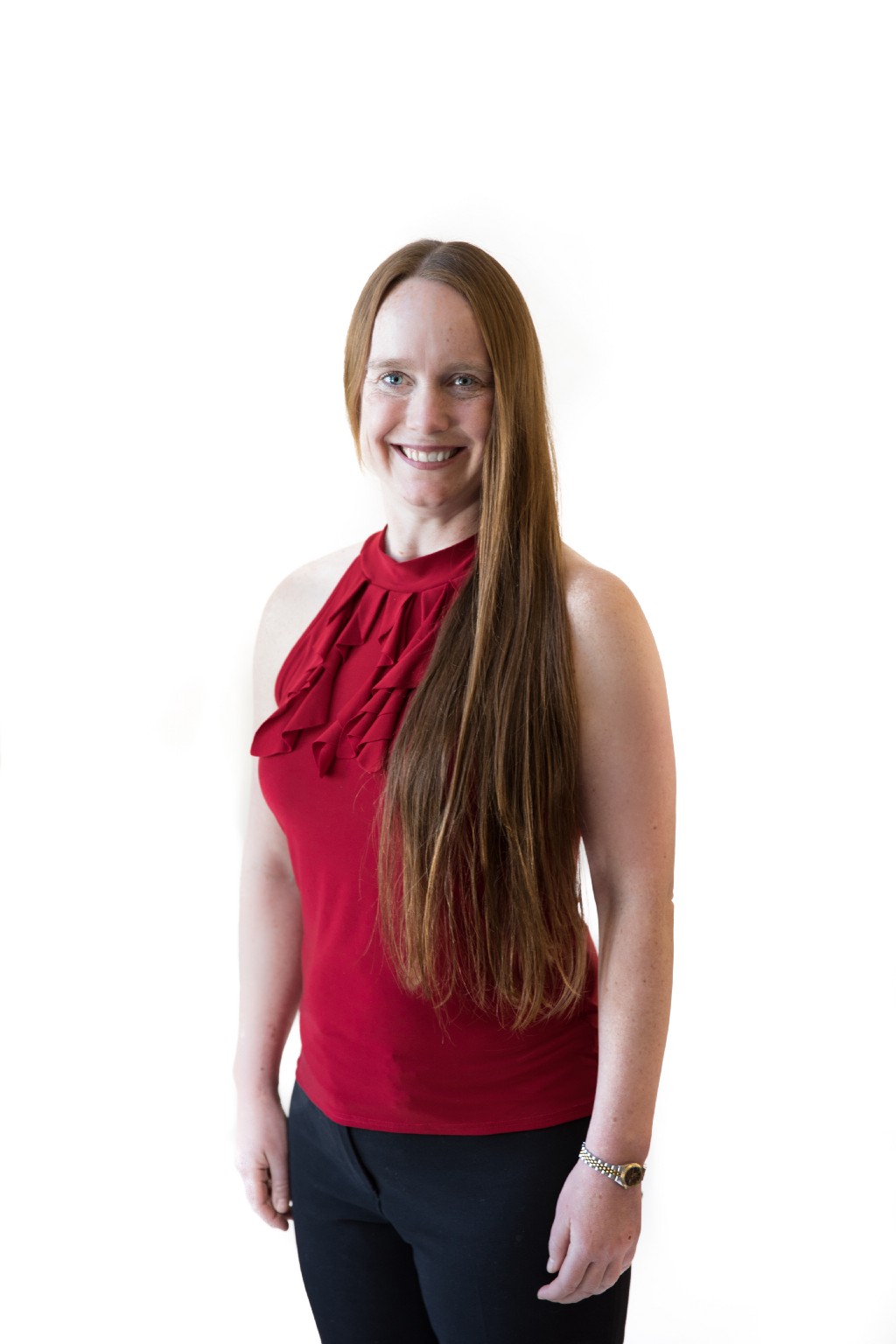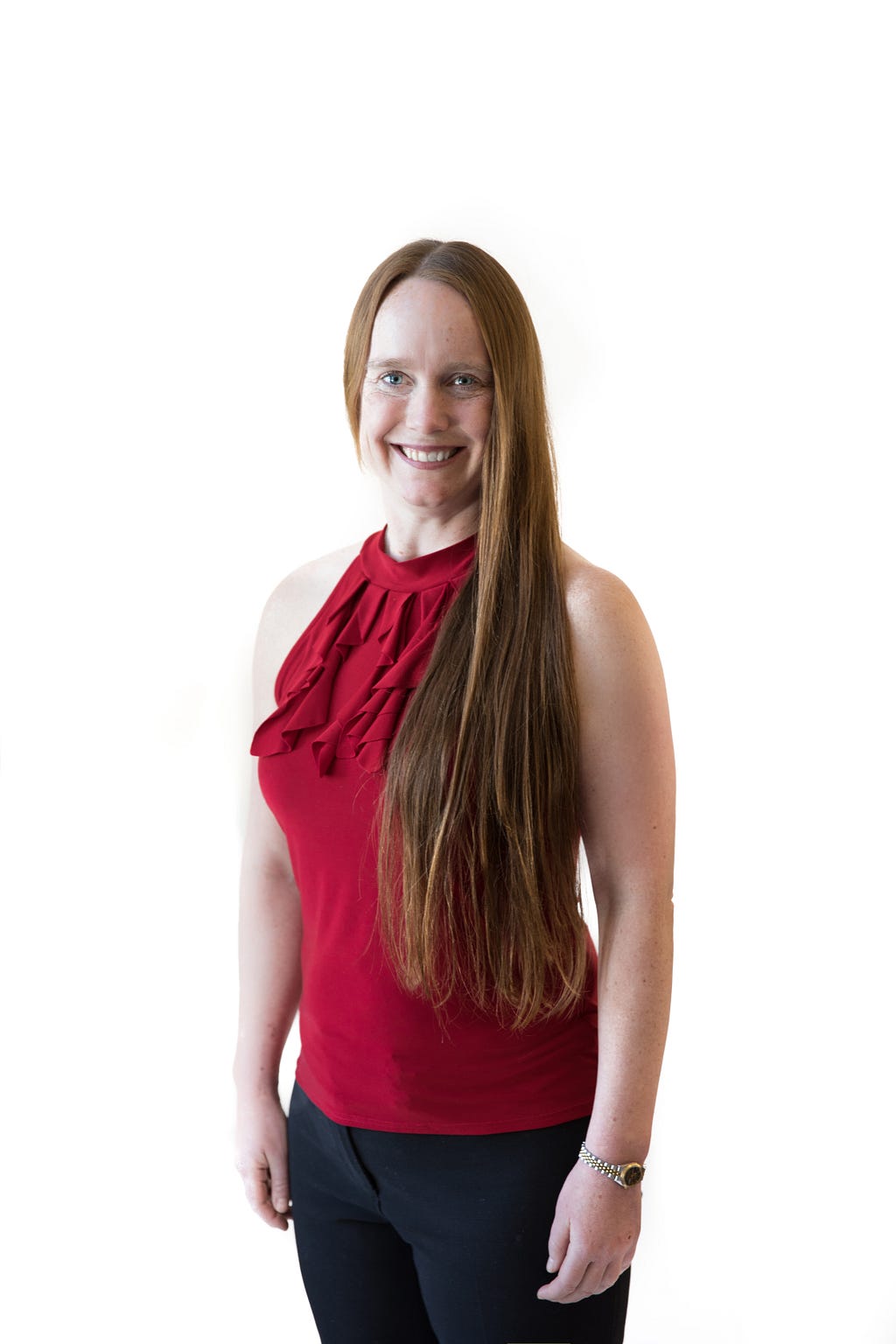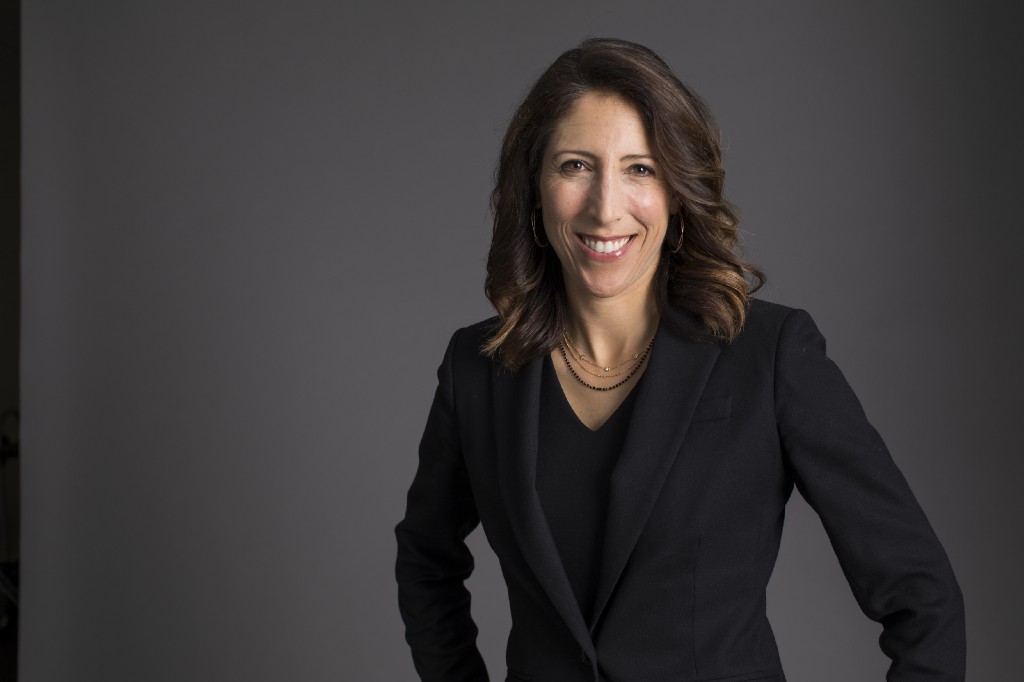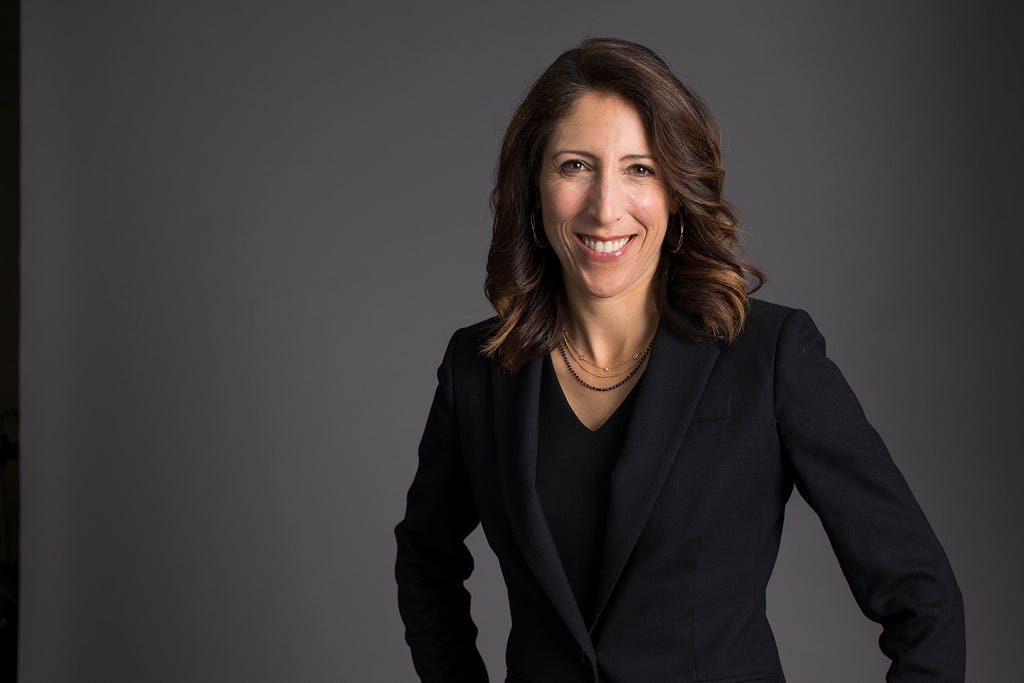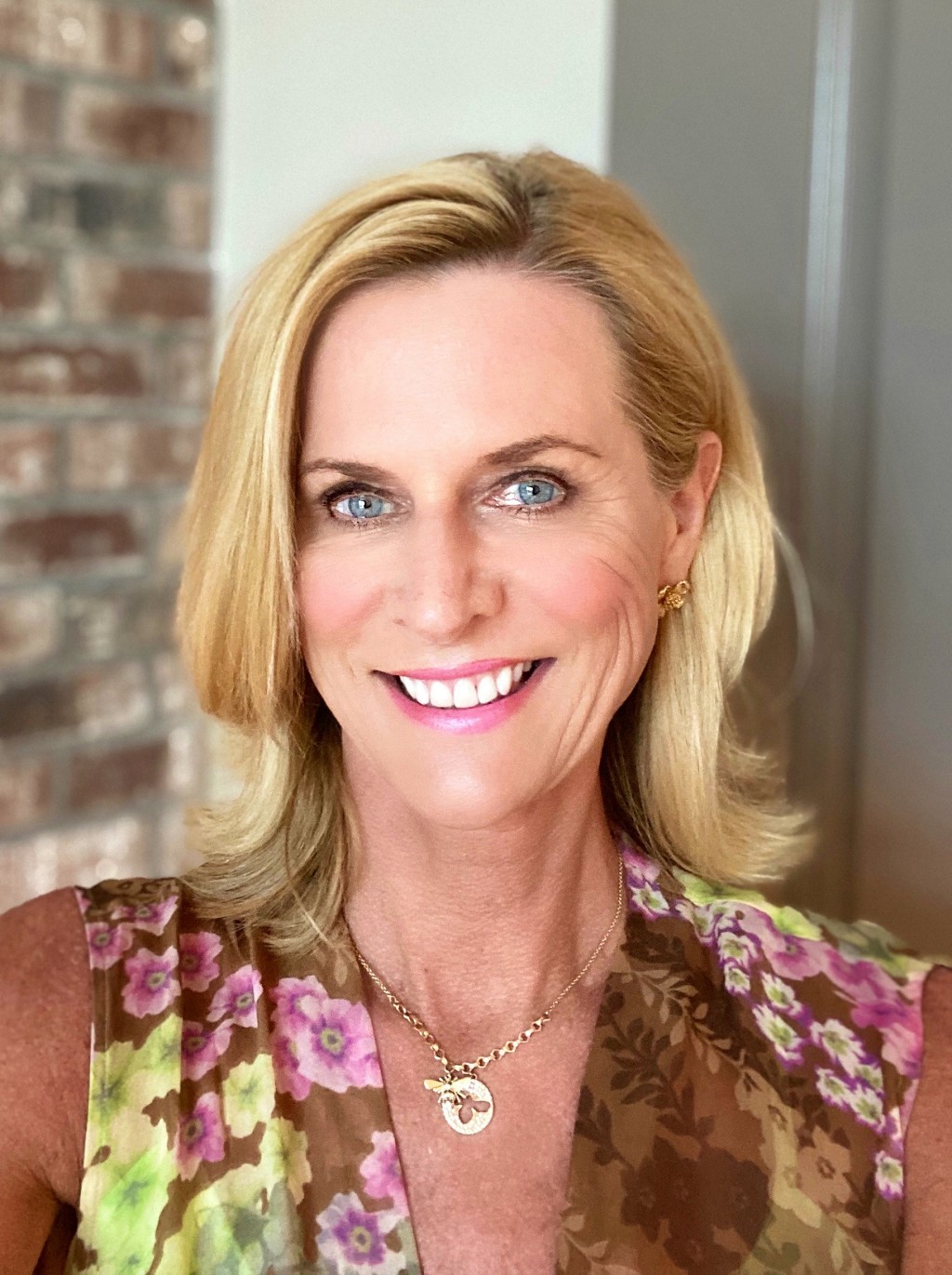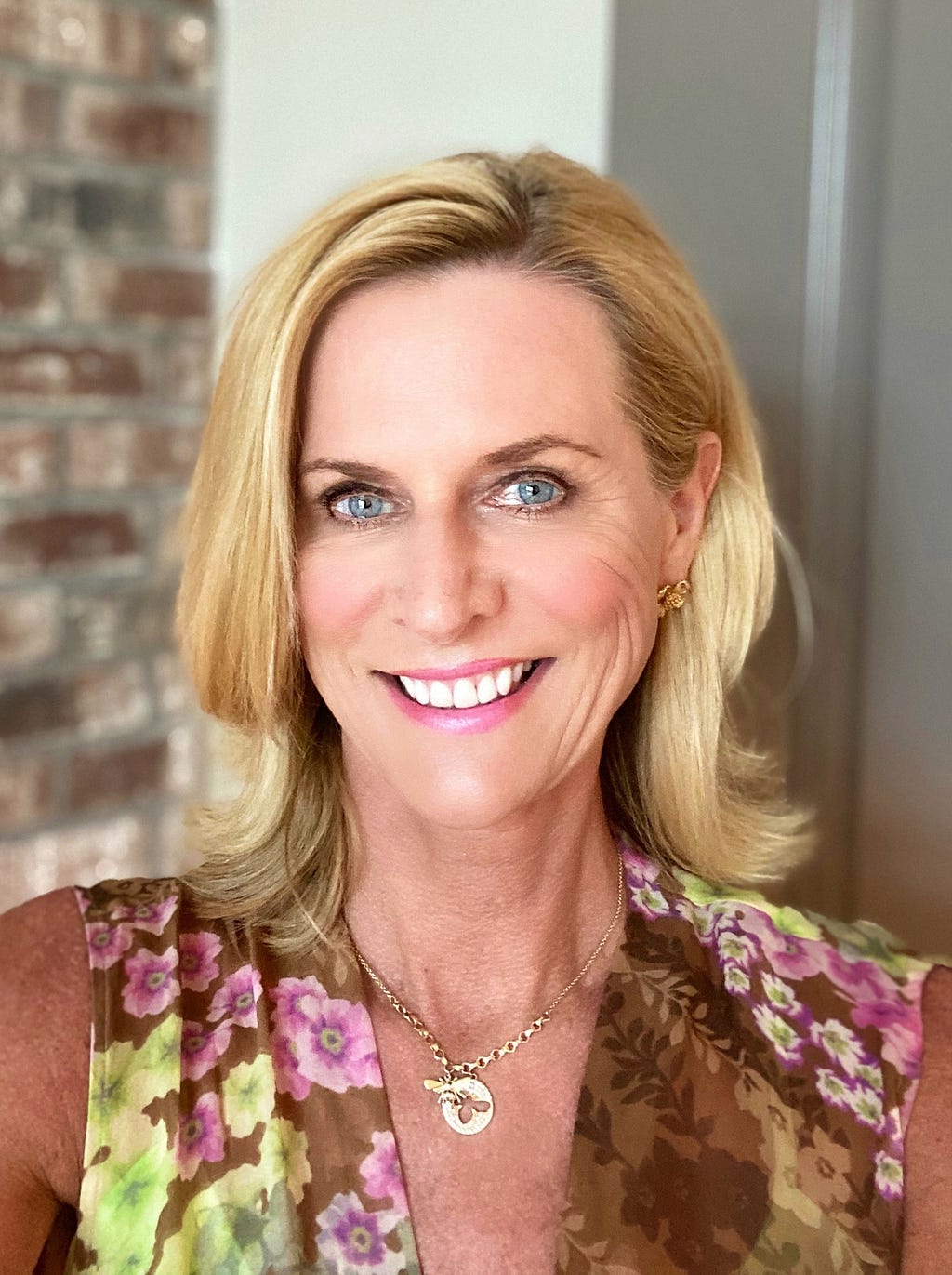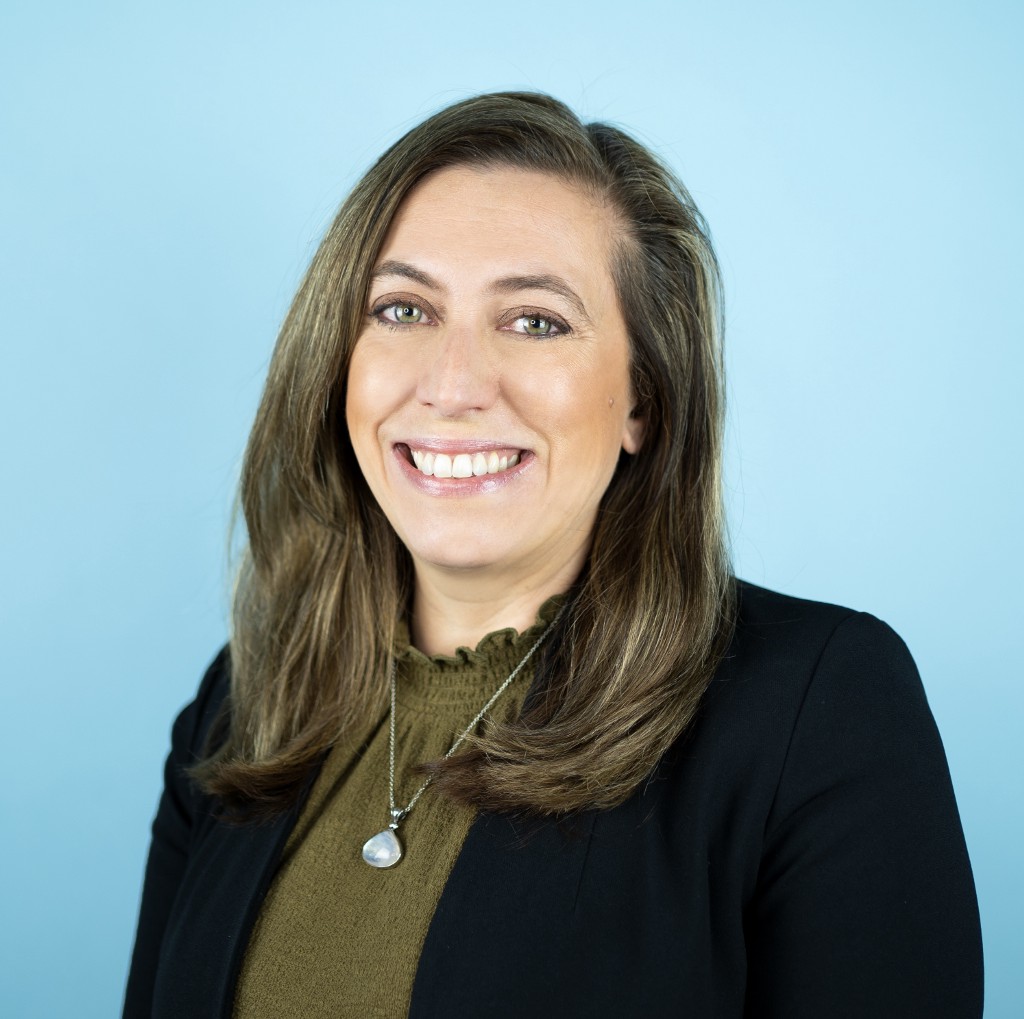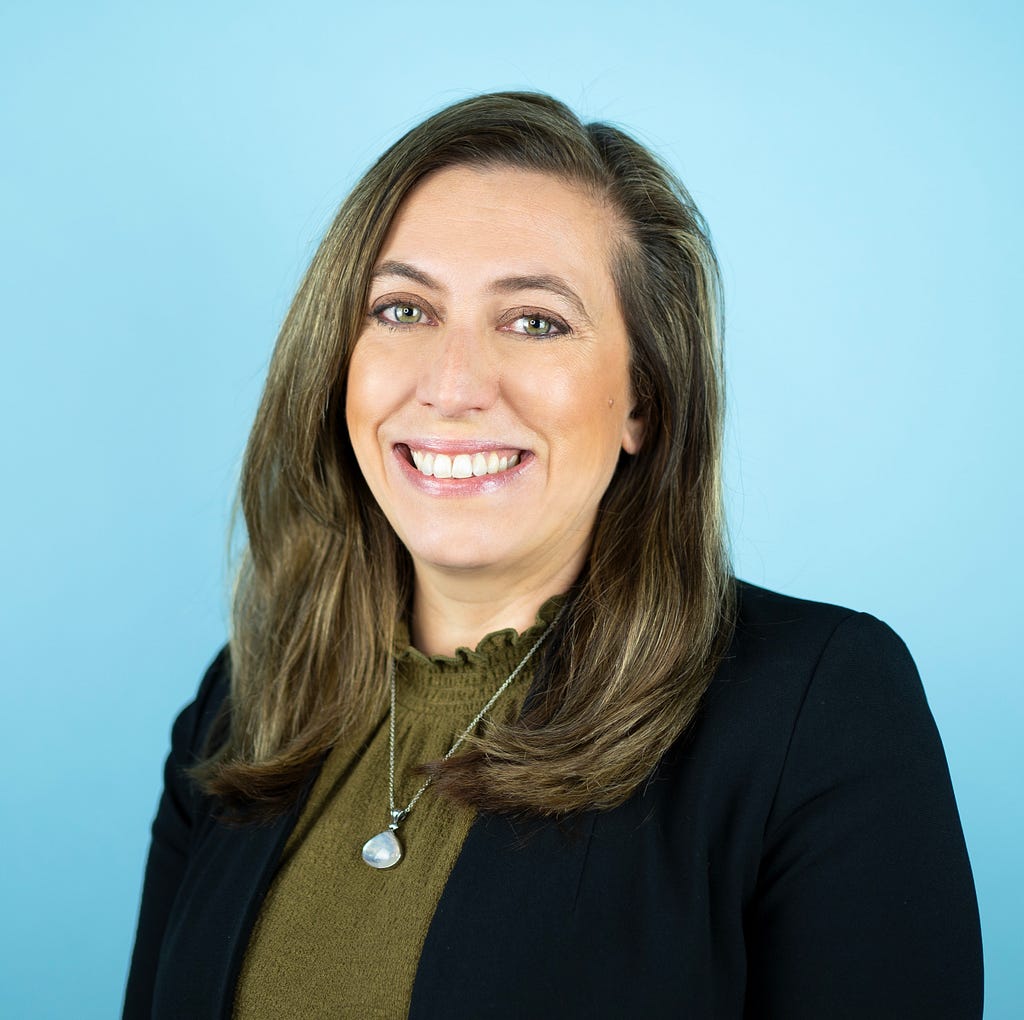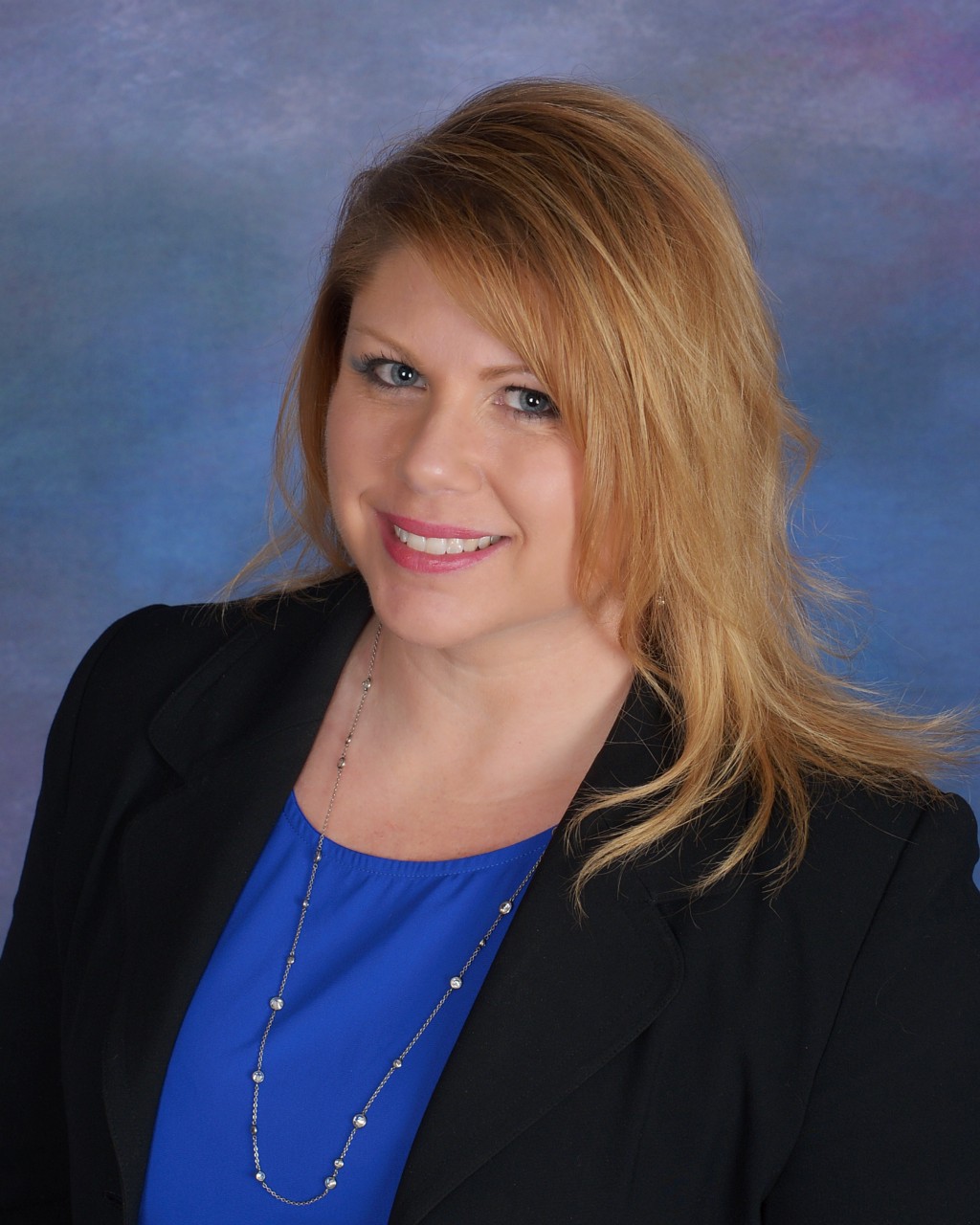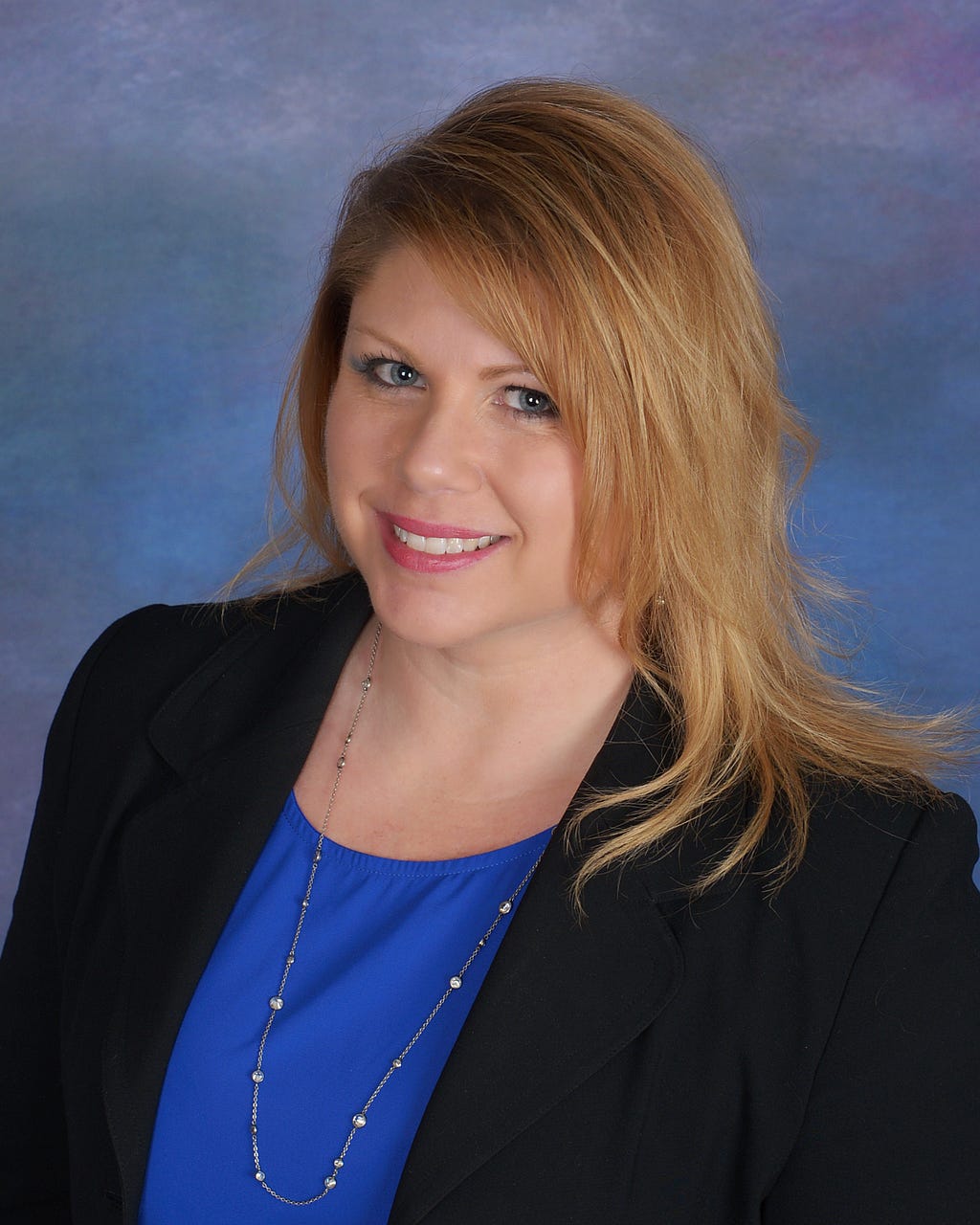Virginia “Gina” Drosos of Signet Jewelers: Be strong enough to set clear vision and direction; Once you’ve done that, be humble and ensure your team feels empowered
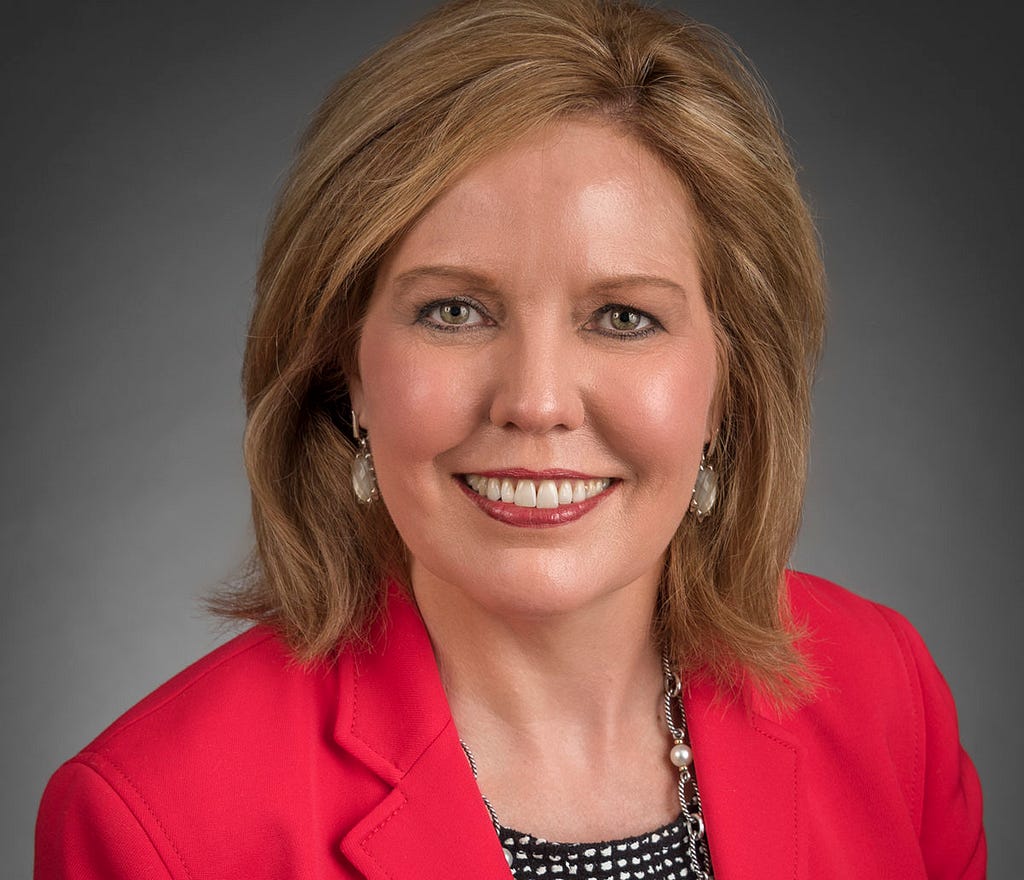
I would give women and men the same advice on this front: Be strong enough to set clear vision and direction, and trust your ability to take in the information you need to set the right course for your team. Once you’ve done that, be humble and ensure your team has the resources and feels empowered to get the job done well.
CEOs need to have a clear vision and focused strategy that creates room for other leaders in the organization to succeed, and also set a culture that allows everyone to bring their best work to the table every day. That’s how high-performance teams are created — by unlocking discretionary effort toward common goals. Strategy and culture begin from the top.
As a part of our series about strong women leaders, I had the pleasure of interviewing Virginia “Gina” C. Drosos.
Virginia “Gina” C. Drosos is the Chief Executive Officer of Signet Jewelers (NYSE: SIG), one of the world’s largest retailer of diamond jewelry, where she leads a team of more than 24,000 to deliver a world-class OmniChannel experience to customers of Kay Jewelers, Zales, Jared The Galleria Of Jewelry, H. Samuel, Ernest Jones, Peoples, Piercing Pagoda and JamesAllen.com.
Gina was appointed Signet CEO in July 2017 and served as a director of Signet’s Board since 2012. She is also on the Board of Directors of American Financial Group (NYSE: AFG), an insurance and investments company.
Gina has more than 30 years of executive leadership experience in the consumer goods, beauty and healthcare industries, as well as retail. She continues to be at the forefront of innovating mass market e-commerce retail, while globalizing and reinventing product categories, to increase sales and profits of brands recognized worldwide.
Thank you so much for doing this with us! Before we dig in, our readers would like to get to know you a bit more. Can you tell us a bit about your “backstory”? What led you to this particular career path?
I grew up believing I would pursue corporate law because my father was an attorney, and as we sat around the dinner table every night, I saw his work experience as a way to make a difference in the world. I changed my mind after a successful entrepreneurial experience chartering sailboats through the Bahamas for Spring Break during my junior year of college. I couldn’t afford to pay for a Spring Break vacation, so a friend and I had the idea to connect with boat owners that were sailing through different points in the Bahamas and pay our way through. After running the same “program” senior year, with 8 boats of kids paying their way through their own vacations, I realized how fun it is to create and conduct business. I then decided that I wanted to create precedents as opposed to interpret them. So, I applied to business school instead of law school and was accepted to Wharton.
Can you share the most interesting story that happened to you since you began leading your company?
I have always, and will always consider myself to be a student of consumer behavior. For example, years ago, when I was at P&G, we wanted to develop beauty and personal care products to delight lower income customers. So, I assigned my team the task to live on the budget of a dollar for two weeks to think about and “live into” how we could improve our products in ways consumers would truly value. So, when one of my kids came home and needed supplies for an unexpected school project, I hadn’t budgeted out the money to pay for it. I spent my gas money and took the bus to work that week instead. These were the little moments of experiential learning that led us to become the #1 beauty company in the dollar channel, and directly feeds into how I work today.
In learning the Signet business, I’ve spent a lot of time with customers, and I now understand that they experience an integrated head and heart journey. This is especially true for our bridal customers who want to express the deepest emotion of their lives, declare that in a visible way, delight their partner, and yet make a smart investment. Buying right is a juxtaposition of emotion and logic that collides in one moment that we are uniquely capable of helping with.
Our understanding of that duality is why we are cracking the code on the eCommerce business. Neither the internet nor eCommerce are new, yet buying jewelry online had been stagnant. During COVID-19, our e-commerce sales have exploded because we’ve quickly pivoted to on-line personal consultation, live chat, virtual appointment booking, co-browsing and much more. We’ve cracked the code by understanding the importance of personal interaction and enabled our consultants to help customers Celebrate Life and Express Love, consistent with our mission.
Can you share a story about the funniest mistake you made when you were first starting? Can you tell us what lesson you learned from that?
I am an experiential learner which is why I spend so much time in our stores. So, when I went to our diamond polishing facility in Botswana, one of the things I wanted to do was polish a diamond. I had to laugh when I naively underestimated how exact this part of the craft is. After 30 minutes of coaching and angling, our expert polisher barely let me touch it to the wheel and said, “Good! Did you get a feel for it?” It’s a skill that requires a hand that is far more practiced than mine, and it showed me how much care goes into creating every single piece.
None of us are able to achieve success without some help along the way. Is there a particular person who you are grateful towards who helped get you to where you are? Can you share a story about that?
My parents above all gave me confidence which enables me to make bold decisions in business today. As a kid, if I did my best, that was enough. And when it wasn’t, there were other things I could try.
I also know how to surround myself with talented people because I know the power of a great team. I’m so fortunate to have that here at Signet.
In terms of mentors, I’d call out Susan Arnold whom I worked with for over 10 years at Procter & Gamble, and as I followed her through the organization, she helped me navigate the corporate environment while giving me the room to learn and grow.
Also, John Pepper was a great CEO. He invested in the power and value of people, and that influence reached down into the organization and positively impacted my leadership style.
In my work, I often talk about how to release and relieve stress. As a busy leader, what do you do to prepare your mind and body before a stressful or high stakes meeting, talk, or decision? Can you share a story or some examples?
I visualize different scenarios that could happen. For example, before a board meeting, I think about key themes and sticking points where I might have a different point of view from the rest of the team, and play out the conversation in my mind. I think it through over the course of a few days, and while it doesn’t always play out the way I expect, that practice of preparedness helps relieve stress.
In the moments I’m not actively thinking about the task at hand, I put it on the back burner to come back with a fresh perspective.
And, I work out and play golf.
As you know, the United States is currently facing a very important self-reckoning about race, diversity, equality and inclusion. This may be obvious to you, but it will be helpful to spell this out. Can you articulate to our readers a few reasons why it is so important for a business or organization to have a diverse executive team?
Racism is real — full stop. People in positions like mine must be activists to change the sphere of influence and create a more inclusive environment for people of all races, genders, and walks of life. Great leaders are humble enough to admit they have more than a few blind spots, and it is critical to build diverse teams to expand the reach of how we work with each other and serve our customers. Surrounding myself with a diverse team that feels comfortable to share any and all ideas and feedback is critical. Diverse organizations deliver better results.
Ok, thank you for that. Let’s now jump to the primary focus of our interview. Most of our readers — in fact, most people — think they have a pretty good idea of what a CEO or executive does. But in just a few words can you explain what an executive does that is different from the responsibilities of the other leaders?
CEOs need to have a clear vision and focused strategy that creates room for other leaders in the organization to succeed, and also set a culture that allows everyone to bring their best work to the table every day. That’s how high-performance teams are created — by unlocking discretionary effort toward common goals. Strategy and culture begin from the top.
What are the “myths” that you would like to dispel about being a CEO or executive. Can you explain what you mean?
It is a complete myth that CEOs have all the answers. Throughout my career in lower levels of leadership, I thought there was a point where I would have all answers, and I think the truth to that is more about finding opportunities and leveraging my strengths. Knowing what questions to ask happens over time, but the answers are always in the team around you.
In your opinion, what are the biggest challenges faced by women executives that aren’t typically faced by their male counterparts?
The business world has yet to realize that toughness is not a gendered notion. Women who are making tough decisions are not inherently witchy. There are many moments when it takes grit to be a good leader as easy decisions don’t come to my office anymore. It’s the thorny business, legal and personnel issues that rise to the top and require guts and grit to solve. As a caring and nurturing person, myself, I know these aspects don’t make me less decisive or tough. If anything, and especially within this highly personable business, it informs the decisions I make in the best ways.
What advice would you give to other women leaders to help their team to thrive?
I would give women and men the same advice on this front: Be strong enough to set clear vision and direction, and trust your ability to take in the information you need to set the right course for your team. Once you’ve done that, be humble and ensure your team has the resources and feels empowered to get the job done well.
How have you used your success to make the world a better place?
It’s all about the people. It’s my belief that making the world a better place is the reason we are all here. I have had the privilege of mentoring and sponsoring many people in all stages of their careers. My goal is to help them achieve their goals to live the life they want, and make choices that are mentally stimulating and build confidence.
I also hope that within my career journey I have successfully helped make the world a better place through products and experiences that reach people so that they can express their true self.
Virginia “Gina” Drosos of Signet Jewelers: Be strong enough to set clear vision and direction; Once was originally published in Authority Magazine on Medium, where people are continuing the conversation by highlighting and responding to this story.


